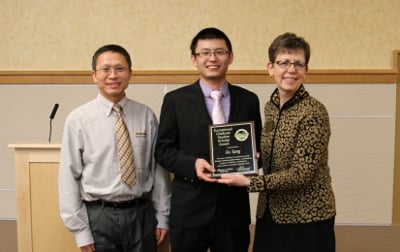Congratulations to the ASCE Steel Bridge Team and Concrete Canoe teams for their outstanding performance at the regional competition in Toledo this past weekend.
The Steel Bridge Team placed second in the region, securing a spot to attend the National competition this summer.
The Concrete Canoe Team placed first in the regional canoe competition, securing a spot to attend their National competition this
summer.
Please be sure to congratulate these students for their countless hours of dedication and hard work.
To learn more about the Canoe Team, check out their website. To learn more about the Steel Bridge Team, check out their website
News article Engineering Society of Detroit Technology Century









